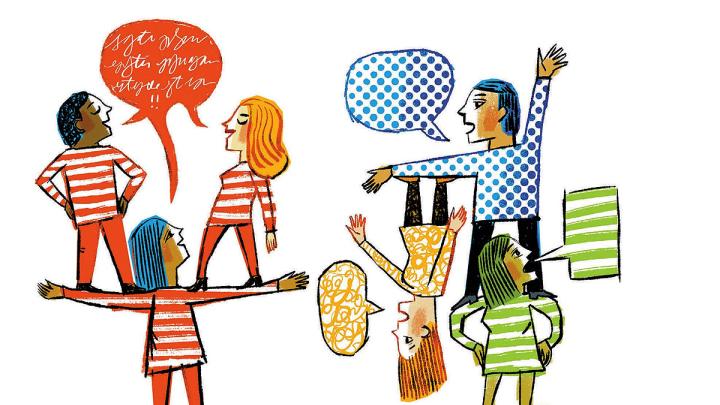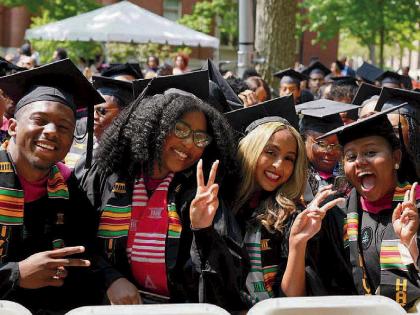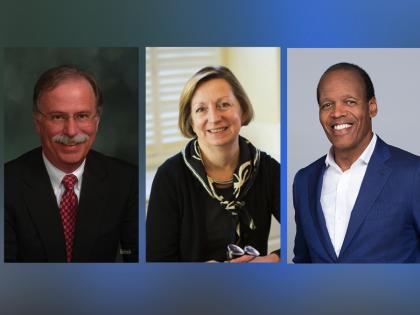In professional settings, teamwork is crucial. Whether in healthcare or higher education, in startups, science labs, or sports franchises, organizations that maximize the effectiveness of collaborative efforts enjoy greater success. But what makes a great team? Harvard Kennedy School researchers have discovered one important factor: “team players”—individuals who make a team greater than the sum of its parts. But how can they be identified? Black professor of political economy David Deming and his collaborators at the Harvard Skills Lab have developed a test for teamwork that enables them to detect those special people who elevate group performance. The best team players, the paper finds, have high levels of emotional intelligence and can efficiently assign tasks to the peers best equipped to perform them.
Deming notes that the modern labor market incentivizes efficient teamwork. Between 1980 and 2012, the number of highly socially-interactive jobs (such as teachers, managers, and nurses) in the United States grew by nearly 12 percent—and wages for social roles also grew faster than the rest of the market.
If teamwork skills are increasingly important, why are they not a subject of academic inquiry? Ben Weidmann, director and cofounder of the Skills Lab (with Deming), believes a quantitative measure of teamwork has been the missing ingredient. When education researchers pilot new teaching methods, they use objective outcome metrics. Without good data, it’s hard to build institutional excitement for new programs. So, he collaborated with Deming to develop a measure of teammate strength.
The Skills Lab tested the ability of hundreds of individuals to recognize shapes, memorize words, and solve math puzzles. They grouped participants randomly into teams of three and had them complete similar tasks together. If the group outperformed the sum of their individual performances, the researchers surmised that there was likely a team player in the mix. Repeated randomization of the trios enabled the observers to identify people who, when added to a team, enhanced its performance.
Being a good team player is not the same as being good at a task. “If I added a chess grandmaster to a chess-playing team,” Deming said, “that team would do better, but not because the chess grandmaster is necessarily a great team player, but because [the grandmaster is] good at chess.” Measuring the actual group performance against the expected outcome based on team members’ prior performances when working alone made it possible for the researchers to identify team players who elevated group output.
Deming and Weidmann hypothesized that team players aided their groups in two ways. First, good teammates encouraged their peers to try harder: groups containing a team player were more likely to use the full time allotted to complete the task, which was associated with better performance. Second, the researchers believe that a good team player facilitates allocative efficiency: having teammates each tackle the task they are relatively strongest at. “Maybe you’re on a team and you think of yourself as a really good computer programmer,” said Deming. “But if they put you on a team with somebody who’s even better, can you recognize that?” The best teammates know their personal skillsets, understand their teammates’ strengths, and are willing to cede their best task to someone more skilled.
After identifying the best team players in the study, the researchers wondered whether these super-coordinators had any traits in common. They found that knowing someone’s IQ, personality, education, ethnicity, or gender did not help predict the likelihood of a person being a team player. But one test of social intelligence did show a correlation. Team players scored higher on the Reading the Mind in the Eyes Test (RMET), which asks participants to identify emotions based on photographed eyes. Originally developed to test for autism and Asperger’s, the RMET has since become a well-established social intelligence measurement. Being a good team player, Deming said, requires, “what psychologists call theory of mind, which is like, ‘Can I walk a mile in somebody else’s shoes?’” Recognizing the mental states of teammates seems to be an important component of teamwork.
Deming and Weidmann are excited by their experimental model but recognize that it’s a first step. “My view of our test is it’s…very first-generation tech,” said Weidmann. “We viewed this as trying to set up a new method and a new technology.” Despite the small scale, he said, the researchers achieved their initial goal: “What we really wanted to do was put together a way of measuring someone’s teamwork skills that was based on their performance,” instead of abstract traits or self-reporting.
The researchers hope that their teamwork metric can improve society. “I think what gets measured gets valued,” Deming said. He wants to demonstrate that “understanding other people, getting along with them, working with them, is an economically valuable skill, and if we measure it well, we’ll start to assess for it. I actually think that’s a better world than one where all we care about is SAT scores and IQ tests…. What that means downstream is that schools spend more time teaching kids to get along and understand each other. I think that’ll be a good world. I’d like to live in that world.”








